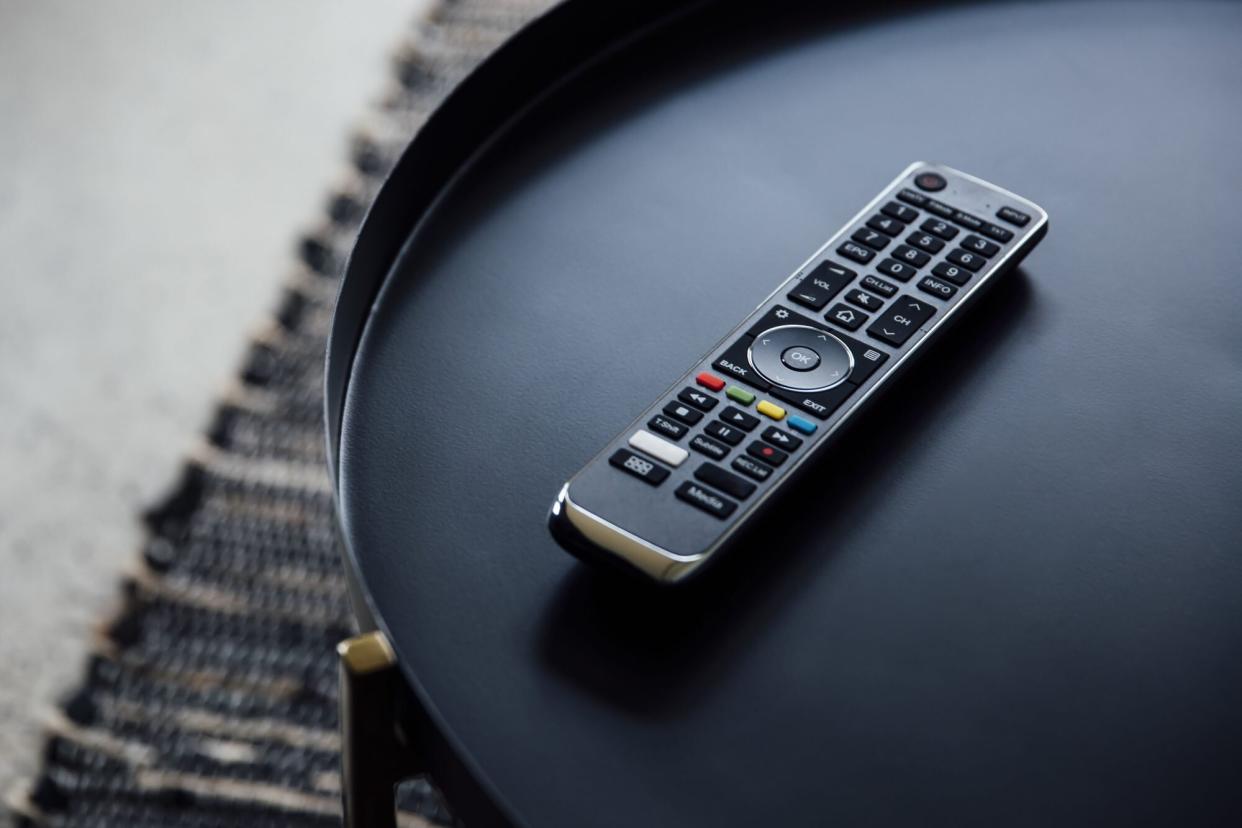How to Clean Battery Corrosion in Your Home Electronics

Michael Kai / Getty
TABLE OF CONTENTS
On This Page
Why Battery Corrosion Occurs
How to Clean Battery Corrosion
When to Call a Professional
How to Dispose of Corroded Batteries
Technology powers our lives, which is why it's important to keep all of our devices in tip-top shape. This includes giving even the smallest devices, like remote controls and mouses, some regular maintenance, too. After all, these tiny but mighty appliances are the gateways to our TVs and laptops and deserve our attention—especially if they are powered by replaceable batteries.
Over time, batteries can age and corrode, which can ultimately damage these devices' interiors, rendering them unusable. To help, we tapped cleaning and sustainability experts, who shared how to remove battery corrosion from our home technology and how to dispose of the batteries afterwards.
Related: Here's How to Clean Your AirPods and Headphones (a Task You Probably Don't Tackle Enough)
Why Battery Corrosion Occurs
Battery corrosion is actually pretty common, says Pat Dehner, the director of training and development at P.C. Richard and Son. "As batteries age, a buildup of gasses inside the battery can seep out the battery's vents causing them to leak potassium hydroxide," he says, noting that most people call this battery acid, which can corrode a device's terminals.
Battery corrosion leaves a crusty crystallization around the batteries and in the device's terminals. When you see it, it's important to quickly clean the impacted battery compartment, especially if you find the corrosion in an item, like a flashlight or child's toy, that hasn't been used in a while. "If you do not clean this corrosion off the terminals, it will cause damage to the device and ultimately render it useless," says Dehner.
How to Clean Battery Corrosion Out of Your Devices
There are two key parts of the battery corrosion cleaning process: neutralizing and removing oxidation. "The neutralizing process converts either an acidic or alkaline substance or solution to a neutral state, which stops the buildup of corrosion," says Dehner.
The latter keeps the electrical current from flowing between the battery and the device, which makes it stop working. Eventually, extensive oxidation buildup can erode the battery terminals entirely—and when that happens, you won't be able to fix the device.
What You'll Need
White vinegar or lemon juice
Cotton swab
Toothbrush
File or sandpaper
After you've gathered your supplies, follow these steps:
First, put on eye protection (like safety glasses, which will protect you from airborne debris), a pair of cloth or rubber gloves, and a long-sleeve shirt.
Remove the battery from the device's compartment.
Neutralize the acid by applying either white vinegar or lemon juice with a cotton swab. "You don't need to drench your device, just simply apply a few drops and wait for the corrosion to start to fizz and disintegrate," says Dehner. "For larger deposits, you may want to use an old toothbrush with vinegar or the lemon juice."
After neutralizing, remove oxidation from the device's battery compartment using a small file, sandpaper, or emery board.
Place a small amount of petroleum jelly on the cleaned contacts before adding new batteries in your home technology, as this protects the contacts and helps electrical conductivity, says Dehner.
When to Call a Professional
While most household devices with common size batteries (like a remote control that calls for double A batteries) can be cleaned by the consumer, call a professional when the device uses specialty batteries or is a medical-related product, says Dehner. To prevent corrosion in the first place, remove batteries from appliances that aren't used regularly before storing them.
How to Dispose of Corroded Batteries
Nearly three billion batteries are bought every year in the United States, according to the U.S. Environmental Protection Agency; they power everything from watches to household tools. These are generally filled with heavy metals and chemical electrolytes, which make the battery work. It's important to remember that not all batteries are the same, says Jeremy Walters, the sustainability ambassador at Republic Services, a waste disposal company. Because of this, certain batteries should be disposed of differently than others.
Types of Batteries
Alkaline batteries: Alkaline and zinc-based batteries are considered standard batteries (they are used for remote controls and flashlights) and can be thrown in the trash, per the EPA.
Button batteries: These are small round batteries usually found in watches, musical greeting cards, and medical devices. "Typically, these batteries contain lithium and can cause fires if damaged," says Walters. "Because of this, they require special handling and shouldn't be thrown away or recycled at your home."
Rechargeable batteries: Rechargeable batteries are made of lithium and often found in items that are put to use for extended periods of time (like cordless power tools or video cameras, says the EPA). They should only be recycled through a designated electronics or battery recycling program. "[They are] the most popular kind of rechargeable battery found in electronic devices and are hazardous, as they can spark fires if damaged or stored improperly," says Walters.
Environmentally-Friendly Battery Disposal Practices
While you can technically throw certain batteries, like alkaline and zinc-based ones, away at home, those items are still better off being recycled externally, says Walters. "We recommend you avoid putting batteries in your trash or recycling at home, as properly recycling batteries can help prevent harm to you and the environment," he says.
Box Mail-Back Program: To dispose of your corroded batteries, try Republic Services' mail-back program. "It's as easy as ordering a prepaid, pre-addressed box and mailing your batteries off to Republic Services for proper disposal," says Walters. "We also offer a mail-back program for electronics with lithium batteries. "
Recycle: Search Earth911 or Call2Recycle for electronic waste drop-off or recycling sites, like Best Buy, in your community. "Many local Republic Services facilities collect electronic waste throughout the year, especially in the spring and fall," says Walters.

